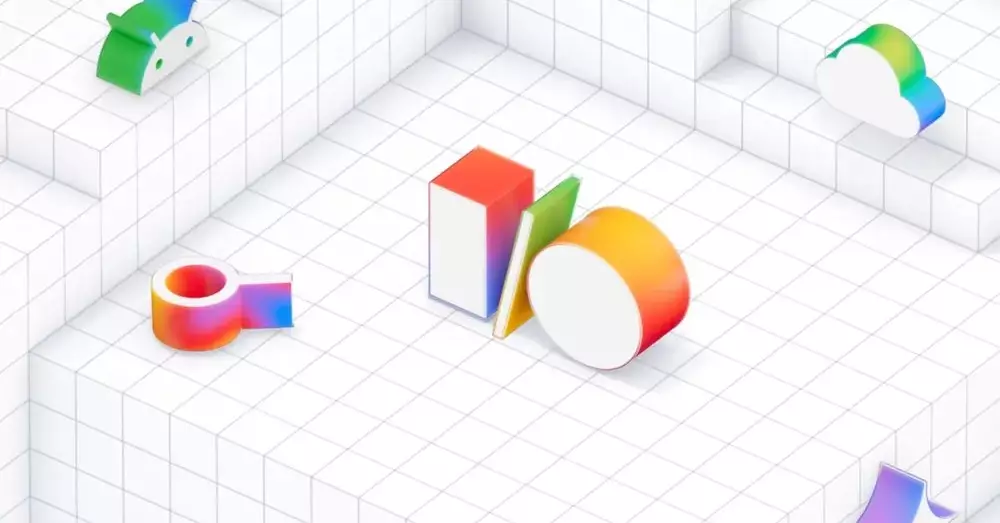Google’s annual I/O developer conference is an event that developers and technology enthusiasts eagerly anticipate, yet this year’s focus marks a distinct shift in the narrative—both in terms of content and context. Unlike previous years where new hardware like Pixel phones or smart home devices were the spotlight, the 2023 keynote is set to revolve predominantly around artificial intelligence (AI) and extended reality (XR). The shift speaks volumes about the company’s strategic priorities and the broader landscape of technology.
The dominance of AI is undeniable at this moment in time, with tools like Gemini taking center stage in Google’s offerings and evolving competitive landscape. As Google strives to keep pace with industry juggernauts like OpenAI, Meta, and Microsoft, the decision to pour resources and attention into AI reveals their commitment to innovation in a rapidly changing environment. This year’s I/O promises to be less about the established Android operating system, which was recently showcased, and more about how Google intends to integrate AI capabilities into everyday experiences through devices powered by innovative technologies.
Timetable for Discovery
Set for May 20 and 21, 2023, the I/O conference will kick off on the 20th at 10 AM PT / 1 PM ET. For those who want to tune in, Google has provided convenient access through their I/O website and YouTube channel, including options for accessibility, such as American Sign Language interpretation. It’s prudent for participants to carve out significant time in their schedules as keynotes are typically lengthy, often lasting a couple of hours.
Given the deep dive expected into AI developments, the anticipation surrounding features of Gemini may well take precedence. The momentum built by the AI race drives the narrative, and insights gleaned from this conference could reshape perspectives about the integration of AI technology into consumer products.
The Gemini Initiative and Beyond
Speculation is rife about the potential revelations regarding the Gemini initiative during the keynote. Innovations are expected not only to bolster smartphone capabilities but to bring forth applications that extend across various devices to enhance user experiences. Features that leverage AI to solve complex problems or streamline tasks could redefine how we interact with technology in our daily lives.
The AI race is not merely a competitive venture but a technological revolution that is altering the fabric of consumer technology. As improvements in computational models yield more powerful tools, we can anticipate a reinvigorated confidence in AI applications. Whether it’s natural language processing, predictive analytics, or advanced personalization, Google’s upcoming announcements could set benchmarks for the tech industry.
Extended Reality: An Evolving Playground
While AI will take the lead in the keynote’s focus, the marvel of extended reality (XR) remains firmly in view. With the burgeoning interest in immersive technologies, Google aims to address its extended reality operating system, highlighting how it plans to enhance user interaction with both digital and physical environments.
The whispers of Google-supported prototype smart glasses tantalize the imagination, pushing the envelope towards tangible XR experiences. As rival companies, such as Samsung, work to launch their XR hardware, Google appears strategically positioned to detail software advancements which complement a growing interest in XR. With the potential convergence of AI and XR, we may witness revolutionary applications—everything from virtual social interactions to enhanced learning environments.
Navigating Future Challenges
With AI and XR dominating this year’s agenda, it is important to acknowledge the challenges that come with such ambitious technological integration. Ethical considerations, particularly surrounding privacy and data usage, will undoubtedly be hot topics. As Google seeks to position itself as a leader in the AI revolution, it must navigate these sensitive issues diligently.
Getting widespread adoption of these technologies relies not only on robust innovations but also on building public trust. The balance must be struck between technological advancement and ethical responsibility, which could shape the landscape of AI and XR for years to come.
Overall, Google I/O 2023 promises to be a pivotal point in tech history as we explore the synergistic potential of AI and XR. The keynote stands not just as a showcase of innovation, but as a harbinger of the future digital experiences awaiting consumers.

